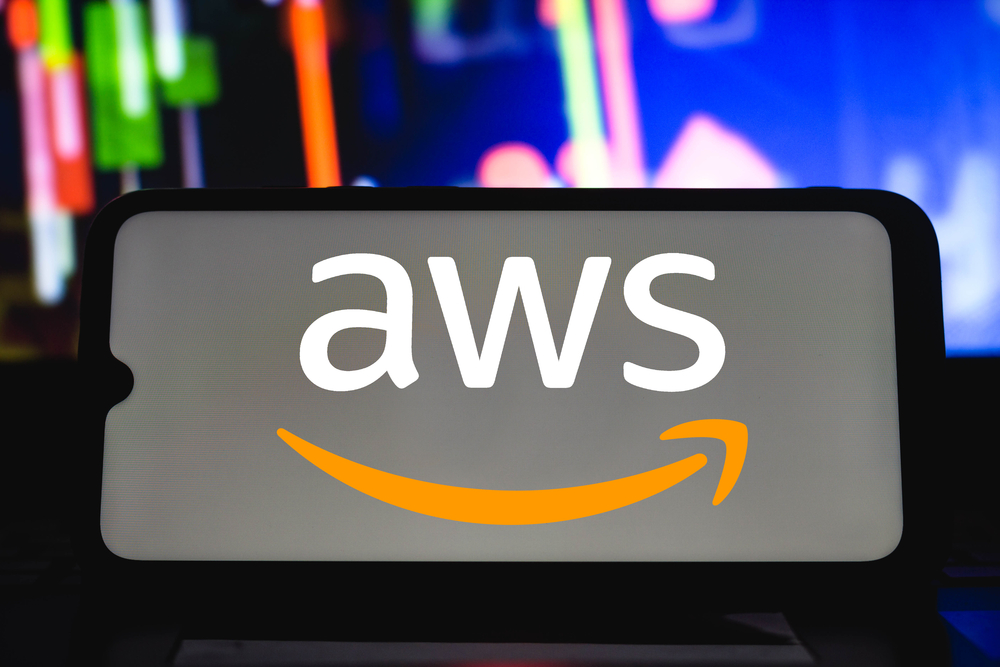
Amazon Web Services (AWS) is a cloud computing platform owned by Amazon. AWS offers a wide range of services, including computing, storage, networking, analytics, machine learning, and more. It has a strong track record of uptime and reliability, which is important for businesses that rely on cloud services for mission-critical operations.
AI/ML solutions are one of the latest additions to the AWS infrastructure. This offering makes AWS a popular choice for businesses and individuals looking to build scalable, cost-effective, and reliable applications using artificial intelligence and machine learning. Here are some of the best AWS AI/ML offerings to empower your business.
Top AI/ML Products Offered by AWS and Their Business Utilities
AWS offers a variety of AI and ML products that can be used to analyze and process large amounts of data, make predictions, and automate tasks to improve efficiency and productivity.
However, before we go further, it is important to note that the performance and accuracy of any ML model primarily depends on the quality of the data fed into that system. Properly labeled data will lead to accurate results; otherwise, the project may fail its purpose. So, before choosing any tool or technology, users must understand how data annotation in AI/ML works.
See also: AWS Eyes a Zero-ETL Future with Newly Announced Capabilities
Having said that, let’s move on to some of the top AWS offerings to empower your ML projects. We’ll also glance at how external data annotation services play an essential role in helping businesses expedite their AI/ML projects.
1. Amazon SageMaker
Amazon SageMaker is a fully managed machine learning service provided by Amazon Web Services. It allows developers and data scientists to build, train, and deploy large-scale machine learning models. Some of the significant features of SageMaker include
- SageMaker Autopilot: This feature allows users to automatically build, optimize, and deploy machine learning models with minimal input and no coding. It uses algorithms and hyperparameter optimization to find the best model for a given dataset.
- SageMaker Studio: This is a fully integrated development environment that allows users to manage their entire machine learning workflow, including data preparation, model training, and deployment in a single, unified interface.
- SageMaker Edge Manager: This enables users to deploy and manage machine learning models at the edge, allowing for real-time prediction and decision-making.
- SageMaker Ground Truth: This feature simplifies the process of labeling data for machine learning by providing tools for creating custom labeling workflows, integrating with human and machine annotators, and tracking the progress and accuracy of labeling efforts.
With Amazon SageMaker, you can use a variety of pre-built machine learning algorithms. You can also bring your custom algorithms to train models using your data or publicly available data sets. In addition, SageMaker provides various tools and services to help you analyze and visualize your data, tune model hyperparameters, and monitor model performance.
Organizations can use this tool to quickly and easily apply machine learning techniques to a wide range of business problems. For example, Sagemaker might predict customer churn or identify fraudulent transactions.
2. Amazon CodeGuru
Amazon CodeGuru is an ML-based tool that helps developers improve code quality and performance. It facilitates automated code reviews and offers results about code errors as well as recommendations for improving application performance. This tool can help IT operators write better codes and troubleshoot issues more efficiently. It does this through a combination of –
Static code analysis: CodeGuru uses static analysis to scan the source code of an application and identify potential issues that could affect performance and/or reliability. This includes coding errors, security vulnerabilities, and unnecessary code complexity.
Runtime performance analysis: CodeGuru monitors the performance of an application while it is running, using data from the Amazon CloudWatch service. It identifies performance bottlenecks and provides recommendations for improving the application’s efficiency.
Automated code review: CodeGuru uses machine learning algorithms to analyze code and provide recommendations for improving its quality and maintainability. This includes refactoring code to make it more readable and easier to understand while identifying areas that require performance improvements.
CodeGuru can be used by businesses of any size to improve the quality and performance of their code. In addition, it can reduce the risk of defects, and save time and resources by automating code reviews and performance analysis. It can be particularly helpful for businesses that rely on large codebases or have a high volume of code changes by ensuring that code changes do not introduce new defects or negatively impact application performance.
3. Amazon Fraud Detector
Amazon Fraud detector is a machine learning-based service that helps businesses identify fraudulent activity in real-time. It uses MI algorithms to analyze a variety of data points, such as transaction details, customer data, and device information, to detect any suspicious activity.
To use the service, businesses can send their data to Amazon for analysis. Also they can use the Amazon Fraud Detector API to integrate the service into their systems.
Once set up, the Fraud Detector can analyze data, providing businesses with alerts and recommendations for actions to respond to potentially fraudulent activities. The service also includes a range of tools and features to help businesses customize their fraud detection efforts. For example, companies might create custom fraud detection models and set custom risk thresholds.
4. Amazon Kendra
Amazon Kendra is an enterprise search service that helps businesses search and retrieve information from various data sources within the organization. It uses AI and ML algorithms to understand the context of a user’s search query and provide relevant results.
Businesses can use Amazon Kendra to improve the efficiency of their search processes. Also, they can reduce the time spent on finding information. It can be integrated into various business applications and processes, such as customer service, HR, and product development.
For instance, a customer service representative can quickly use Kendra to find answers to customer inquiries. Alternately, an HR manager can use it to locate employee records and policies.
5. Amazon Polly
Amazon Polly is a text-to-speech service. This AWS product operates on deep learning to convert any sort of text into natural human speech. It helps businesses by allowing them to build applications that can easily converse with humans. Therefore, it can help develop advanced speech-enabled products.
Amazon Polly can be a valuable tool for businesses that want to create more engaging, accessible, and interactive content for their users. For example, you can use it to do the following.
- Create audio versions of written content: Amazon Polly can be used to create audio versions of written content such as articles, blog posts, and eBooks. This can be useful for businesses that want to reach a wide audience to make their content more accessible to people with visual impairments.
- Build interactive voice response (IVR) systems for customer service or other applications: Amazon Polly can be used to create automated voice responses that customers can interact with over the phone or through a voice-enabled device.
- Creating audio content for language learning or translation applications: Amazon Polly can generate spoken versions of the written text in multiple languages, which can be helpful for language learners or people who need to translate written content into another language.
6. Amazon Translate
Amazon Translate is a machine translation service by AWS. It uses advanced neural machine translation technology to translate text from one language to another with high accuracy and fluency. It supports a wide range of languages, including English, Spanish, Italian, German, Japanese, and many others.
Businesses can use this service in various ways to facilitate communication and expand their reach to global markets. For example, businesses that operate a website or mobile app in multiple languages can leverage Amazon Translate to ensure accuracy.
7. Amazon Comprehend
Amazon Comprehend is a natural language processing (NLP) service that uses machine learning to extract meaningful insights from a text. NLP is a field of artificial intelligence that focuses on enabling computers to understand, interpret, and generate human language.
With Amazon Comprehend, businesses can automatically analyze large volumes of data. As a result, companies gain insights about the content, customer sentiment, and themes of the text. Some specific capabilities of Amazon Comprehend include
- Sentiment Analysis: Determine the overall sentiment of a piece of text (positive, negative, or neutral).
- Keyphrase Extraction: Identify the main themes or topics discussed in a piece of text.
- Entity Recognition: Identify and classify named entities (people, organizations, locations, etc.) in a content piece.
- Language Detection: Automatically identify the language of a piece of text.
- Summarization: Generate a summary of a long piece of text.
8. Amazon CloudWatch
Amazon CloudWatch is a monitoring service providing data and operational insights for various AWS resources. This mainly includes Amazon EC2 instances, Amazon RDS DB instances, and Amazon S3 buckets.
CloudWatch enables you to collect, access, and interpret various metrics, set alarms, and respond to changes made in your resources. With CloudWatch, you can monitor resource utilization, performance, and operational health and detect and troubleshoot issues in real-time. For example, you can use CloudWatch to monitor the performance of an EC2 instance. You simply set the alarm to stop the model if it becomes unresponsive.
9. Amazon Rekognition
Amazon Rekognition is a cloud-based image and video recognition service that makes it easy to search and analyze video content. With Amazon Rekognition, businesses can identify objects, people, texts, scenes, and activities in images and videos and detect inappropriate content.
Businesses can use Amazon Rekognition to
- Identify and classify objects and scenes, which can be helpful in tasks such as sorting and categorizing content.
- Track the presence and movements of specific individuals, which can be useful for security and surveillance applications, and personalized customer experiences.
- Extract and recognize text from images and videos, which can be useful for tasks such as transcribing documents or extracting data from receipts and invoices.
- Detect and classify inappropriate content, allowing businesses to take action to protect their users and maintain a safe online environment.
The Significance of Data Annotation in AI/ML Models
AI/ML models need to be fed with accurate data sets for them to function and perform as desired. That is done via data annotation or data labeling. It refers to converting a raw dataset into an organized one by attaching labels to the smallest data units. The ML algorithm uses those labels to teach itself to recognize data elements, interpret their meaning, and identify them.
For instance, to train a machine to recognize people, developers must use a dataset (like images) where every person is labeled as an adult, child, elderly, man, woman, etc. After image annotation is done, any AI/ML model can teach itself to identify people in any dataset.
However, annotating large databases is a time-consuming, labor-intensive process that requires a very specific skill set and experience. As a result, it is usually wiser for businesses to outsource data annotation services to an experienced service provider who can help label the data better and faster.
Conclusion
Whether you’re looking to build custom machine learning models or use pre-trained models, AWS has the tools and resources to help you get started. With its extensive cloud infrastructure and advancements in AI, AWS is the top choice for businesses looking to leverage the power of machine learning to drive innovation and growth.

Brown Walsh is a content analyst currently associated with SunTec India- a leading multi-process IT outsourcing company. Over a ten-year-long career, Walsh has contributed to the success of startups, SMEs, and enterprises by creating informative and rich content around data-specific topics, like data mining, data processing, and data annotation services. Walsh also likes keeping up with the latest advancements and market trends and sharing the same with his readers.


